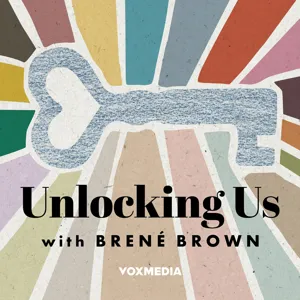Ali Abu Awwad and Robi Damelin on Nonviolence as The Path to Freedom for Palestinians and Israelis

Explore "nonviolence" with insightful episodes like "Ali Abu Awwad and Robi Damelin on Nonviolence as The Path to Freedom for Palestinians and Israelis", "Best Of: A Revelatory Tour of Martin Luther King Jr.’s Forgotten Teachings", "The Real Dr. King with Jonathan Eig", "A Revelatory Tour of Martin Luther King Jr.’s Forgotten Teachings" and "156. Momentum: The Ripples Made by Ordinary People, Part 11" from podcasts like ""Unlocking Us with Brené Brown", "The Ezra Klein Show", "Here's Where It Gets Interesting", "The Ezra Klein Show" and "Here's Where It Gets Interesting"" and more!


It’s hard to think of a more celebrated figure of the 20th century than Martin Luther King Jr.
He has a national memorial in Washington, D.C. His birthday is one of just 11 federal holidays. His words and legacy are routinely evoked by politicians of both major parties. I would go as far as to say he should be considered one of America’s founding fathers, which is one reason why I wanted to revisit this episode on Independence Day.
But the paradox of King’s legacy is that while many revere him, very few actually read him. Most of us can cite a handful of his most famous quotes, but King’s actual teachings span five books, countless speeches and sermons, and years of detailed correspondence.
There’s perhaps no scholar working today who studies Dr. King’s political philosophy as deeply as Brandon Terry. Terry is the John L. Loeb associate professor of social sciences at Harvard, where he specializes in Black political thought. He is the co-editor of “To Shape a New World: Essays on the Political Philosophy of Martin Luther King, Jr.,” the editor of “Fifty Years Since MLK,” and the author of numerous popular and academic articles on King’s political thought. His work is committed to rescuing the nuances of Dr. King’s philosophies and forcing a confrontation with what King actually said and believed, rather than what he’s come to represent.
In this conversation, taped in January, we follow the commitment that animates much of Terry’s work: to take King seriously as a philosopher, rather than as purely a political actor. And it turns out that King understood a lot about politics that we’ve lost sight of today.
We’re taping an “Ask Me Anything” episode soon. If you have a question for Ezra, send it to ezrakleinshow@nytimes.com with the subject line, “AMA.”
Mentioned:
“Imagining the nonviolent state” by Ezra Klein
“Beyond Vietnam: A Time to Break Silence” by Martin Luther King Jr.
From the War on Poverty to the War on Crime by Elizabeth Hinton
“Rethinking the Problem of Alliance: Organized Labor and Black Political Life” by Brandon M. Terry and Jason Lee
The Truly Disadvantaged by William Julius Wilson
Book recommendations:
Where Do We Go From Here by Martin Luther King Jr.
The Trumpet of Conscience by Martin Luther King Jr.
The Sword and the Shield by Peniel E. Joseph
A More Beautiful and Terrible History by Jeanne Theoharis
Dark Ghettos by Tommie Shelby
Thoughts? Guest suggestions? Email us at ezrakleinshow@nytimes.com.
You can find transcripts (posted midday) and more episodes of “The Ezra Klein Show” at nytimes.com/ezra-klein-podcast, and you can find Ezra on Twitter @ezraklein. Book recommendations from all our guests are listed at https://www.nytimes.com/article/ezra-klein-show-book-recs.
This episode of “The Ezra Klein Show” is produced by Emefa Agawu, Annie Galvin, Jeff Geld, Rogé Karma and Kristin Lin. Fact-checking by Michelle Harris, Kate Sinclair, Mary Marge Locker and Rollin Hu. Original music by Isaac Jones. Mixing by Jeff Geld. Audience strategy by Shannon Busta. The executive producer of New York Times Opinion Audio is Annie-Rose Strasser. Special thanks to Sonia Herrero.

Today on Here’s Where It Gets Interesting, Sharon talks with Jonathan Eig, the author of the new Martin Luther King Jr. biography, King: A Life. Eig spent six full years researching and writing about King’s life. He shares countless moments and pieces of King’s story that get left out of the general image we have of the I Have a Dream preacher. He also argues that, through honoring the Civil Rights activist with a holiday and through flashy quotes and merch like mugs and tees, we lose sight of the real King and his radicalism.
Special thanks to our guest, Jonathan Eig, for joining us today. Find King: A Life here.
Hosted by: Sharon McMahon
Guest: Jonathan Eig
Executive Producer: Heather Jackson
Audio Producer: Jenny Snyder
Hosted on Acast. See acast.com/privacy for more information.

It’s hard to think of a more celebrated figure of the 20th century than Martin Luther King Jr.
He has a national memorial in Washington, D.C. His birthday is one of just 11 federal holidays. And his words and legacy are routinely evoked by politicians of both major parties.
But the paradox of King’s legacy is that while many revere him, very few actually read him. Most of us can cite a handful of his most famous quotes, but King’s actual teachings span five books, countless speeches and sermons, and years of detailed correspondence.
There’s perhaps no scholar working today who studies Dr. King’s political philosophy as deeply as Brandon Terry. Terry is the John L. Loeb associate professor of social sciences at Harvard, where he specializes in Black political thought. He is the co-editor of “To Shape a New World: Essays on the Political Philosophy of Martin Luther King, Jr.,” the editor of “Fifty Years Since MLK,” and the author of numerous popular and academic articles on King’s political thought. His work is committed to rescuing the nuances of Dr. King’s philosophies and forcing a confrontation with what King actually said and believed, rather than what he’s come to represent.
In this conversation, we follow the commitment that animates much of Terry’s work: to take King seriously as a philosopher, rather than as purely a political actor. And it turns out that King understood a lot about politics that we’ve lost sight of today. We discuss why a “romantic narrative” of the civil rights era stops us from taking King seriously as a philosopher; the true radicalism of King’s nonviolent philosophy; King’s complex views on the relationship between race and class; how King wrestled with the demands of “respectability politics”; King’s wide-ranging economic views, including the idea that the economy should be subservient to the community (and not the other way around); King’s enthusiasm for tenant unions and welfare rights unions as critical democratic inventions; whether the state should embrace the same nonviolence it often demands of protesters; the roots of King’s opposition to the war in Vietnam; whether we’ve lost the ability to grapple with “virtue” in politics today; and more.
Mentioned:
“Imagining the nonviolent state” by Ezra Klein
“Beyond Vietnam: A Time to Break Silence” by Martin Luther King Jr.
From the War on Poverty to the War on Crime by Elizabeth Hinton
“Rethinking the Problem of Alliance: Organized Labor and Black Political Life” by Brandon M. Terry and Jason Lee
The Truly Disadvantaged by William Julius Wilson
Book recommendations:
Where Do We Go From Here by Martin Luther King Jr.
The Trumpet of Conscience by Martin Luther King Jr.
The Sword and the Shield by Peniel E. Joseph
A More Beautiful and Terrible History by Jeanne Theoharis
Dark Ghettos by Tommie Shelby
Thoughts? Guest suggestions? Email us at ezrakleinshow@nytimes.com.
You can find transcripts (posted midday) and more episodes of “The Ezra Klein Show” at nytimes.com/ezra-klein-podcast, and you can find Ezra on Twitter @ezraklein. Book recommendations from all our guests are listed at https://www.nytimes.com/article/ezra-klein-show-book-recs.
“The Ezra Klein Show” is produced by Emefa Agawu, Annie Galvin, Jeff Geld, Rogé Karma and Kristin Lin. Fact-checking by Michelle Harris, Kate Sinclair, Mary Marge Locker and Rollin Hu. Original music by Isaac Jones. Mixing by Jeff Geld. Audience strategy by Shannon Busta. The executive producer of New York Times Opinion Audio is Annie-Rose Strasser. Special thanks to Sonia Herrero.

Today in our special series, Momentum: Civil Rights in the 1950s, Sharon talks about the rising popularity of Dr. Martin Luther King Jr. and how, with greater visibility comes greater threat. We follow Dr. King as he and his comrades persevere through bombings, arrests, scathing rumors, wiretaps, and assassination attempts. Who was one of Dr. King’s biggest adversaries? If you’ve been following along since the beginning of the series, it may not surprise you to know it was J. Edgar Hoover and the FBI.
Dubbing him the most dangerous man in the country, they often used underhanded tactics to spy on King, discredit his authority, and sway public opinion. It didn’t work as well as they hoped, and King continued to organize, act, and inspire people to join the fight for Civil Rights. Through it all, King championed the redemptive power of nonviolence, a message that was a stark contrast to the brutality being inflicted upon Black Americans in the South.
Hosted on Acast. See acast.com/privacy for more information.

How can we meditate when it seems like the world is falling apart? How do we titrate our news consumption? What do we do with our fears about World War III? How can we do anything constructive to help given how far away many of us are from the action? Why are so many people so upset about Ukraine when they weren’t paying much attention to the wars raging in places like Syria, Yemen, or Ethiopia?
Today’s guest is uniquely qualified to answer these questions, given his experience in combat. Claude AnShin Thomas is an ordained monk in the Japanese Soto Zen Tradition. At 17, he signed up to fight in Vietnam and spent his tour of duty in the theater of war, surrounded by death and destruction. He came home suffering from an undiagnosed case of PTSD and spent years grappling with addiction and homelessness before he was introduced to Buddhism. He says meditation can help all of us look at the roots of war and violence that we all harbor.
Claude Anshin is now the founder of the Zaltho Foundation, dedicated to addressing the causes and consequences of violence in and among individuals, families, and societies. He has served in war zones, hospitals, schools, and prisons. He has also led meditation retreats at sites of war and suffering, and has worked with gang members, guerillas, and refugees. He is the author of the award-winning book At Hell's Gate: A Soldier's Journey from War to Peace, which has been translated into several languages, and Bringing Meditation to Life.
This episode explores the above questions and additionally:
Content Warning: There are discussions of war, violence, suicide, and substance abuse throughout this episode.
Full Shownotes: https://www.tenpercent.com/podcast-episode/claude-anshin-thomas-427
See Privacy Policy at https://art19.com/privacy and California Privacy Notice at https://art19.com/privacy#do-not-sell-my-info.

From 2016, Representative John Lewis weighs in on the Black Lives Matter movement and discusses his experience at Martin Luther King Jr.'s March on Washington in "March: Book Three."
Learn more about your ad-choices at https://www.iheartpodcastnetwork.com
See omnystudio.com/listener for privacy information.

This episode is extremely special to me and one I’ve been wanting to deliver to you for a long time. Today's guest is Martin Luther King, Jr.
Martin shares the best advice he received from his mother, why we treat others wrong and what your life's blueprint should include for a meaningful human experience. He also explains his dissatisfaction with the results that followed his famous "I Have A Dream" speech." Text Jay Shetty 310-997-4177
A Word From Our Sponsors:
3 months of unlimited access for just $30 at thegreatcoursesplus.com/JAY
Get $50 OFF at BollandBranch.com, promo code JAY
Try Fender Play FREE for two weeks AND save 50% off a Fender Play Annual Plan. That’s
fender.com/podcast and be sure to use our special offer code JAY at checkout.
See omnystudio.com/listener for privacy information.


This Snacktime episode takes us to the woods, with revenge-filled confessions and mysterious sounds...
Stay up to date
For any inquiries, please email us at hello@podcastworld.io